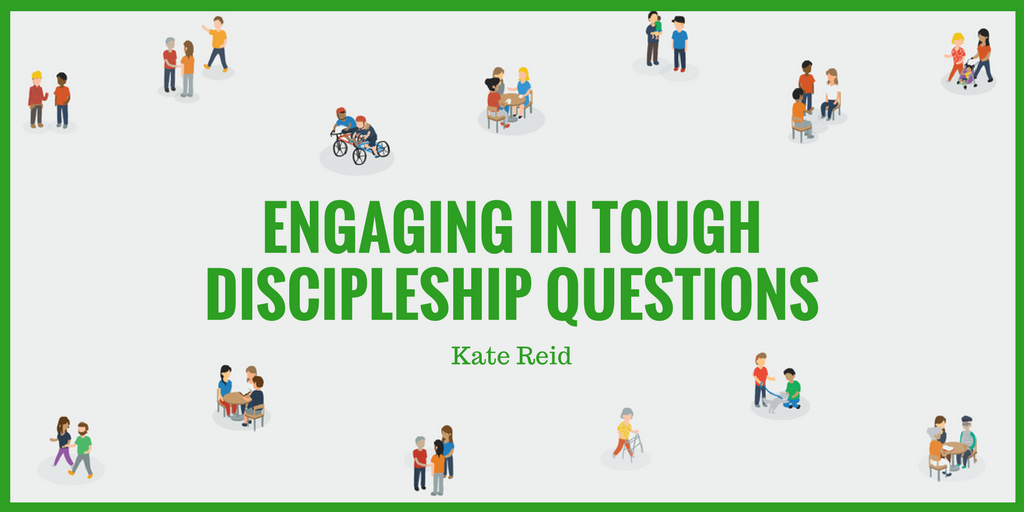Engaging in Tough Discipleship Questions
 When you think of discipleship, what fills you with fear?
When you think of discipleship, what fills you with fear?
My role as camp director of Camp Likely has given me the opportunity to meet and interact with many young adults and teens. These are teens who desire to follow Jesus with their whole hearts. They want answers to big questions as they face decisions about their futures, friendships, relationships, church, and faith.
Some of the hardest conversations I have with them are about these big topics. These are challenging conversations because each one comes with a different perspective, sphere of influence, and specific needs. I really don’t want to give them cookie-cutter answers that I know "feel" good or are the "right" thing to say. I want to be able to engage in the conversation authentically, as Jesus did.
This, however, has been seriously impossible. I have found that when I engage in conversations about sexuality, finances, faith, career, or relationships that I’m not sure what to say or what not to say. These are topics that are so personal, so close to the heart. I don't want to lose the relationship I already have with them by being too assertive with my views.
My biggest fear in discipleship is being too forward. I struggle with the fine balance of listening and encouraging with correcting, or offering another way of thinking or doing. I know I limit the amount of hard conversations or questions I have because I don't want to lose the relationship. I don't want it to be overly serious.
However, Jesus still requires me to be a disciple-maker. To be engaged. To be serious. To be fun. To be dependable. To be honest. To be faithful to His ways.
In a world where many young people are choosing to leave their faith or live it out differently than in the past, I believe we have a call to still engage. Engage in what is going on with those who we are in relationship with. And if we can't even show up, what can we contribute?
I truly believe that if I won't first address my fears about discipleship or my fears about the big questions or the grey areas of living for Christ, then how can I expect to be an effective disciple-maker?
How can Jesus use your strengths and weaknesses to point people closer to Him? How can Jesus lead you to engage as He did?
As we share some of our fears, I believe we will be able to consider what it means to truly engage in the tough questions, discover our role, and identify the obstacles that are stopping us. When I do this, I have noticed that I no longer feel stuck in my weakness but experience the joy of living in Christ's strength (Philippians 4:13).



